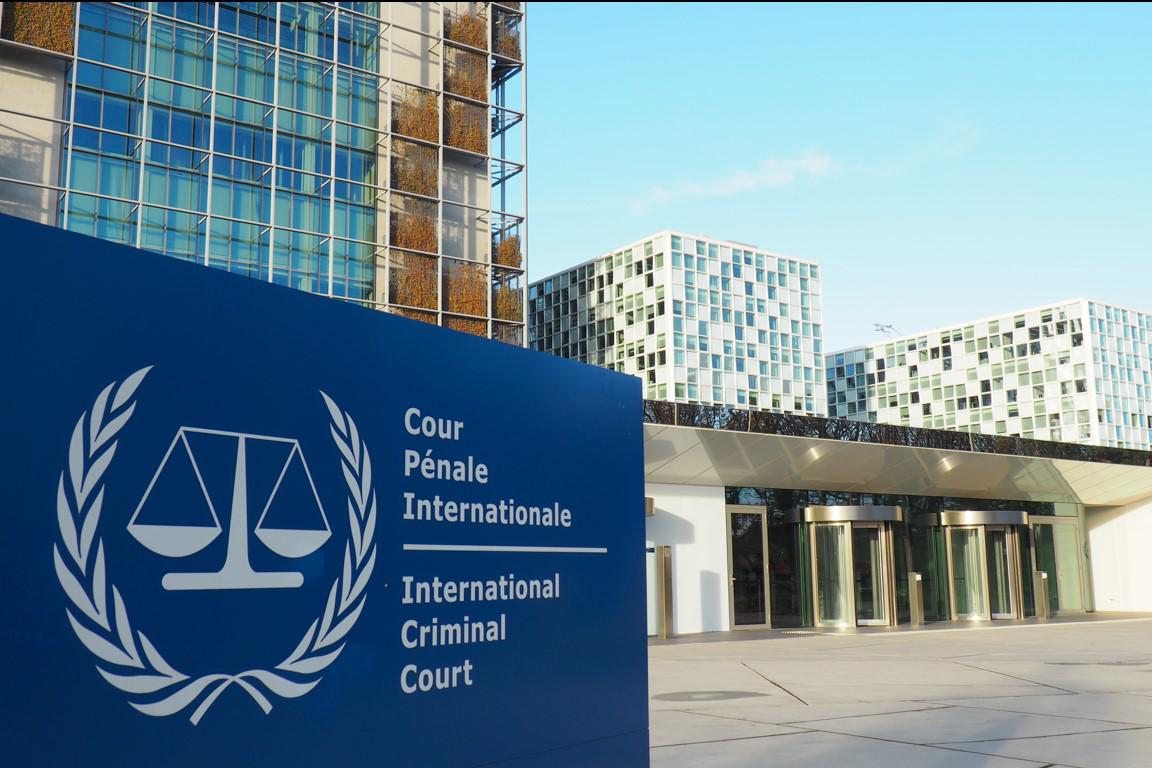Central African Republic: First Seleka Suspect in ICC Custody

The surrender by Central African Republic authorities of the first Seleka-rebel suspect to face charges at the International Criminal Court (ICC) is an important step toward justice for serious crimes committed by the two main warring factions in the country’s civil conflict, Human Rights Watch said today. Mahamat Said Abdel Kani was flown from the Central African Republic to ICC headquarters in The Hague on January 24, 2021. He is accused of war crimes and crimes against humanity committed as a Seleka commander in Bangui, the capital, in 2013.
The ICC issued the arrest warrant under seal on January 7, 2019. “Said is the first commander of the Seleka, a group responsible for wide-ranging atrocities against civilians, to be brought before the ICC,” said Elise Keppler, associate international justice director at Human Rights Watch. “Said’s case is an important step, but it should be followed by other cases against Seleka leaders, some of whom are implicated in abuses still being committed today.” In 2012, the predominantly Muslim Seleka rebels ousted the Central African Republic President, François Bozizé, and seized power through a campaign of violence and terror. In March 2013, the Seleka took control of Bangui, attacking civilians and pillaging the city. In late 2013, Christian and animist militias known as anti-balaka began to organize counterattacks against the Seleka. Both the Seleka and anti-balaka have been implicated in widespread atrocities against civilians. An ICC judge found reasonable grounds to believe that from March 2013 to January 2014 the Seleka committed a widespread and systematic attack against the civilian population, elements of crimes against humanity. Said is accused of responsibility for the crimes against humanity of imprisonment or other severe deprivation of liberty, torture, persecution, enforced disappearance, and other inhumane acts, and the war crimes of torture and cruel treatment. Said, who is 50 and from the town of Bria, is believed to have joined the Seleka in 2012 and was promoted to lieutenant, colonel, and then commander. In April 2013, when Seleka abuse in Bangui was acute, he was given a key role in the Central Office for the Repression of Banditry (Office Central de Repression du Banditisme, OCRB). Said’s surrender occurred a few weeks before the opening of a trial against two anti-balaka leaders, Alfred Yékatom and Patrice-Edouard Ngaïssona.
Their cases had stood in stark contrast to the absence of proceedings involving crimes by the Seleka, who continue to control vast territory in the country. Human Rights Watch has documented the Seleka’s involvement in abuses since 2013. In 2014, the Seleka splintered into several groups, including the Popular Front for the Renaissance (FPRC), headed by Noureddine Adam and Michel Djotodia. Recently, some factions of the FPRC have aligned themselves with anti-balaka forces. Djotodia is currently residing in Bangui and Adam is openly circulating in the Northeast. Other high-profile Seleka leaders, such as Mahamat Al Khatim, Saleh Zabadi and Ali Darassa continue to lead splinter Seleka groups. Some Seleka leaders were granted government posts in 2019 after a peace agreement. “Said’s arrest is important for ensuring that justice is not – nor seen to be – one-sided,” Keppler said. “Central African Republic authorities played a valuable role by cooperating with the ICC in Said’s surrender.” Said will now have his initial appearance at the ICC.
The court will subsequently hold a hearing to determine if the charges against him should be confirmed and a trial go forward. In 2014, the ICC opened an investigation into crimes in the Central African Republic since 2012, following a request from the Central African government. This is the ICC’s second investigation into crimes committed in the Central African Republic.
The first investigation there, related to an earlier conflict in 2002 and 2003, has not yet held any individuals to account for crimes committed.
The first investigation produced only one case, against Jean-Pierre Bemba, a Congolese former vice president, which ended in an acquittal on appeal in June 2018. ICC investigations in the Central African Republic are complemented by the Special Criminal Court, an important new court set up in Bangui staffed by international and Central African judges and prosecutors, and the country’s ordinary courts.
The Special Criminal Court began operations in 2018 but has yet to hold its first trial.
There has been a recent upsurge in violence in the Central African Republic surrounding the presidential election held on December 27, 2020. A new rebel coalition has engaged in a number of attacks, leaving several peacekeepers dead and leading to further mass civilian displacement.
The coalition consists of both anti-balaka and Seleka factions.
The recent violence signals the end of the 2019 peace deal. “The arrest of the first Seleka suspect, and impending trial of anti-balaka leaders, should send a powerful signal to those committing crimes at this very moment,” Keppler said. “The Central African Republic finds itself at a critical juncture, with armed groups at the gate of the capital. Would-be perpetrators should realize they too could find themselves in the dock.” .
Read the full article at the original website
References:
- https://www.hrw.org/report/2013/09/18/i-can-still-smell-dead/forgotten-human-rights-crisis-central-african-republic
- https://www.hrw.org/report/2013/12/18/they-came-kill/escalating-atrocities-central-african-republic
- https://www.icc-cpi.int/Pages/item.aspx?name=pr1559
- https://www.hrw.org/news/2020/07/28/central-african-republic-icc-sets-trial
- https://www.hrw.org/news/2018/11/19/central-african-republic/icc-new-chance-justice
- https://www.hrw.org/news/2018/12/13/justice-moves-ahead-central-african-republic
- https://www.hrw.org/news/2019/12/13/moment-justice-central-african-republic
- https://www.hrw.org/report/2017/07/05/killing-without-consequence/war-crimes-crimes-against-humanity-and-special
- https://www.hrw.org/news/2020/12/23/central-african-republic-rebel-violence-threatens-elections
- https://www.hrw.org/news/2020/01/15/djotodia-returns-central-african-republic
- https://www.hrw.org/news/2019/04/24/central-african-republic-dont-reward-warlords
- https://www.hrw.org/news/2014/06/26/central-african-republic-icc-investigation-needed
- https://www.icc-cpi.int/car
- https://www.hrw.org/news/2018/06/11/no-redress-central-african-victims
- https://www.hrw.org/report/2018/05/17/looking-justice/special-criminal-court-new-opportunity-victims-central-african
- https://www.hrw.org/news/2019/02/22/central-african-republic-justice-vital-peace
